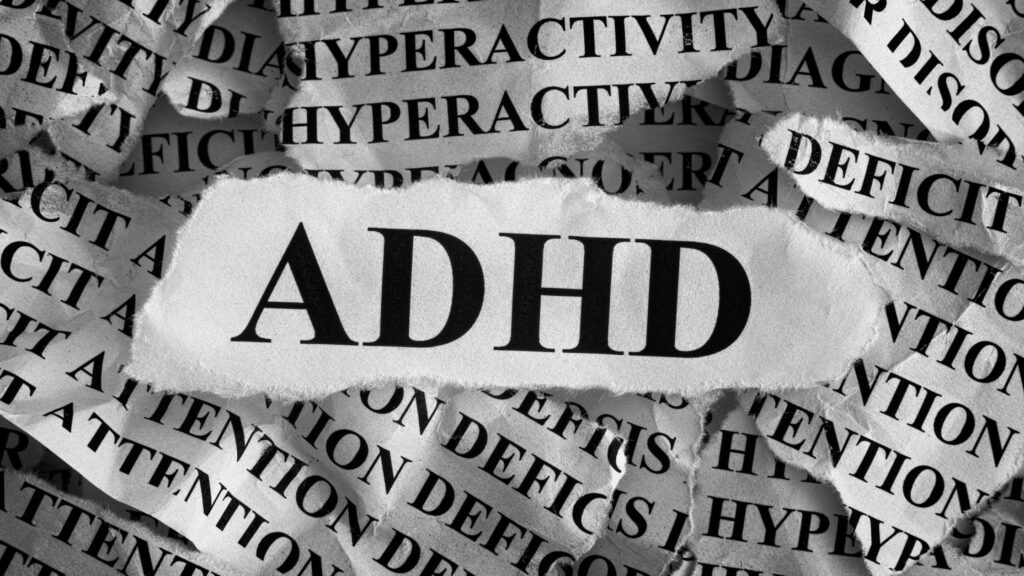Do you have trouble focusing on tasks? Are you excessively tidy or organized? Do you feel like you’re always in a hurry? If so, you may be dealing with OCD or ADHD. While these conditions are often viewed as separate, they can be quite related. In this blog post, we will discuss the similarities and differences between OCD and ADHD, as well as what you can do to manage them.
Contents
What Does ADHD Mean?

Attention Deficit Hyperactivity Disorder (ADHD) is a mental health disorder that can cause impulsive behaviors, difficulty paying attention, and problems with regulating emotions. People with ADHD may also have trouble sitting still or controlling their impulses. Many children with ADHD grow up to be adults with the condition, though it can often manage with treatment.
What Does OCD Mean?
Obsessive-Compulsive Disorder (OCD) is a mental health disorder that causes people to have intrusive, unwanted thoughts (obsessions) and to engage in repetitive behaviors (compulsions) in an attempt to control their anxiety. People with OCD often have very specific routines or rituals that they feel they must follow to prevent their anxiety from getting out of control.
What Are The Similarities Between OCD And ADHD?

There are quite a few similarities between OCD and ADHD: Some of them are here:
Cause Problem With Focus And Concentration
Both disorders share this symptom. People with ADHD have trouble focusing on one task, while people with OCD can get easily sidetracked by their intrusive thoughts.
Both Are Associated With Anxiety
For people with ADHD, anxiety can be a comorbid disorder (meaning it occurs alongside ADHD). Research has found that about 30 percent of people with ADHD also have an anxiety disorder. People with OCD also commonly experience anxiety, as their obsessions and compulsions are driven by fear and worry.
Tend To Be Impulsive
People with both disorders tend to act impulsively. This may manifest in different ways: People with ADHD may make impulsive decisions without thinking them through, while people with OCD may perform compulsions without being able to control themselves.
Both Can Be Hereditary
There is evidence that both disorders can pass down in families. If you have OCD or ADHD, it’s likely that someone in your family also has the disorder.
So what does this all mean? It means that if you have been diagnosed with one of these disorders, you may be at a higher risk for the other. And if you think you might have OCD or ADHD, it’s important to talk to a mental health professional who can help you get an accurate diagnosis and develop an effective treatment plan.
What Are The Differences Between OCD And ADHD?
Well, OCD is characterized by intrusive, unwanted thoughts (obsessions) that lead to compulsions (repetitive behaviors or mental acts that the person feels they must do to “fix” or prevent something bad from happening). ADHD, on the other hand, is primarily a problem with executive functioning skills like attention, organization, and impulse control.
While there are some similarities between OCD and ADHD, they are two very different conditions. If you think you might have either OCD or ADHD, it’s important to talk to a mental health professional who can help you get an accurate diagnosis and develop an effective treatment plan.
Experiencing Unwanted Obsession
One of the key ways that OCD and ADHD differ is in their primary symptoms. People with OCD tend to experience obsessions, which are unwanted and intrusive thoughts that cause anxiety or distress. In contrast, people with ADHD primarily have problems with executive functioning skills like attention, impulsivity, and organization.
Obsessions Are Irrational
Another difference between OCD and ADHD is that people with OCD often recognize that their obsessions are irrational, but they feel powerless to stop them. In contrast, people with ADHD may not be aware of their difficulties with attention or impulsivity until it starts to interfere with their daily lives.
These are just a few of the ways that OCD and ADHD differ. If you think you might have either condition, it’s important to talk to a mental health professional who can help you get an accurate diagnosis and develop an effective treatment plan.
How To Treat Both OCD And ADHD?

There is no one-size-fits-all approach to treating either OCD or ADHD, but there are some general principles that can be helpful for both conditions.
Find A Therapist
Who understands Both Conditions: Look for a therapist who is familiar with both OCD and ADHD, as they will be best equipped to understand and treat the unique ways that these conditions can interact.
Cognitive-Behavioral Therapy
Cognitive-behavioral therapy (CBT) is a type of therapy that has shown to be effective in treating both. In this type of therapy, you work with a therapist to identify and change negative thinking patterns and unhealthy behaviors.
If you want help with ADHD And OCD, then book a consultation with our experts today through our website of Mantra Care. During the consultation, you will be able to ask any questions that you may have and get helpful tips on how to deal with them.
Medication
There is no cure for either OCD or ADHD, but medication can be an effective way to manage symptoms of both conditions. Stimulant medications are commonly used to treat ADHD, while serotonin reuptake inhibitors (SSRIs) are often used to treat OCD.
Self-Care
It is important to practice self-care when you have OCD and ADHD. This includes getting enough sleep, eating a healthy diet, and exercising regularly. Taking breaks throughout the day and setting aside time for relaxation can also be helpful.
Support Groups
There are many support groups available for people with OCD and ADHD. These groups can provide valuable information and support from others who understand what you are going through.
If you have OCD and ADHD, it is important to seek treatment from a qualified professional. Cognitive-behavioral therapy and medication can be effective treatments for both conditions. Additionally, self-care and support groups can also be helpful. With treatment, it is possible to manage the symptoms of both.
Conclusion
In conclusion, OCD and ADHD are two very different disorders that can confuse one another. However, there are certain similarities between the two, such as impulsivity and difficulty concentrating. If you or someone you know is struggling with either of these disorders, it’s important to seek professional help. There are many resources available that can provide support and guidance.
If you are looking for affordable Online OCD Counseling MantraCare can help: Book a trial OCD therapy session


